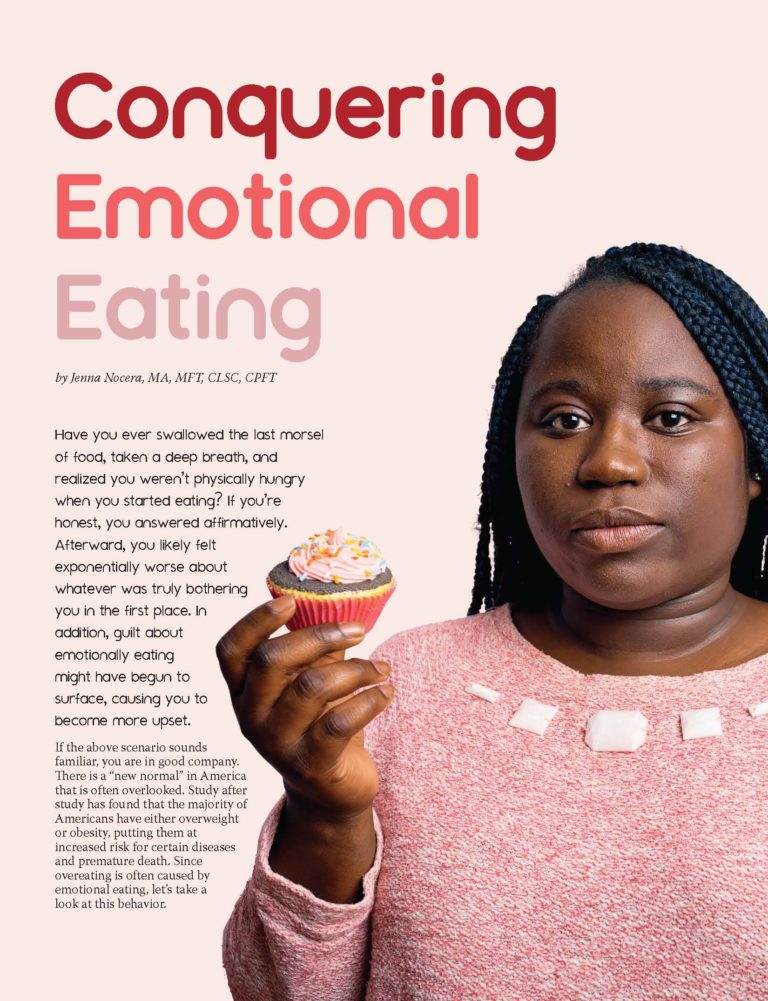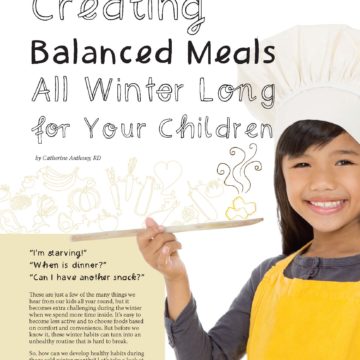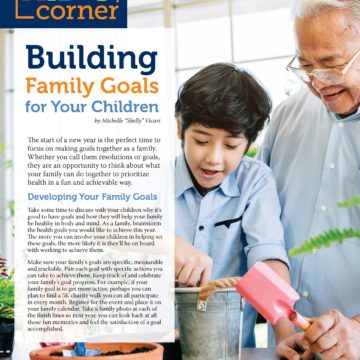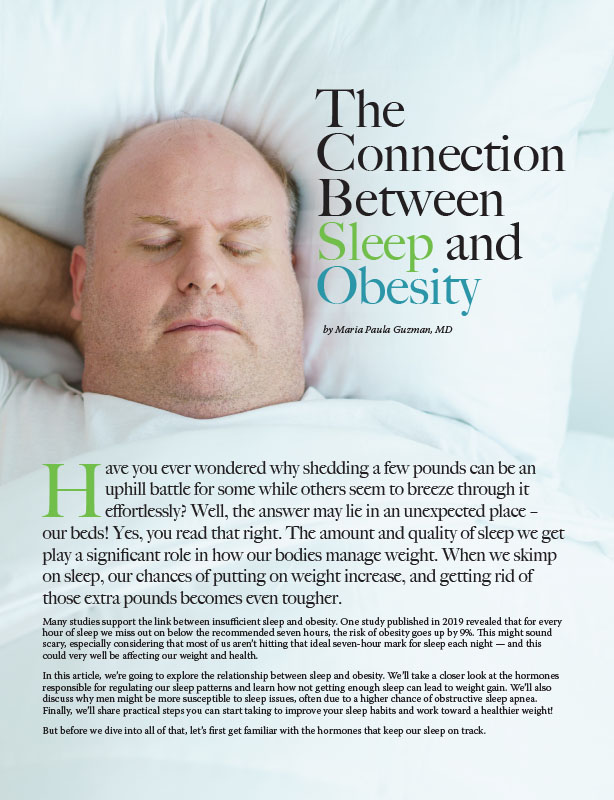Conquering Emotional Eating


by Jenna Nocera, MA, MFT, CLSC, CPFT
Winter 2023
Have you ever swallowed the last morsel of food, taken a deep breath, and realized you weren’t physically hungry when you started eating? If you’re honest, you answered affirmatively. Afterward, you likely felt exponentially worse about whatever was truly bothering you in the first place. In addition, guilt about emotionally eating might have begun to surface, causing you to become more upset.
If the above scenario sounds familiar, you are in good company. There is a “new normal” in America that is often overlooked. Study after study has found that the majority of Americans have either overweight or obesity, putting them at increased risk for certain diseases and premature death. Since overeating is often caused by emotional eating, let’s take a look at this behavior.
What is Emotional Eating?
Emotional eating refers to eating as a way to cope with emotions rather than eating in response to true physical hunger. These emotions may include (but are not limited to) anger, boredom, loneliness, frustration and even happiness.
Emotional eating can also be a sign of an eating disorder, such as anorexia, binge eating disorder or bulimia – but not necessarily. Anyone can be an emotional eater from time to time as it impacts countless people. American culture centers around processed and addictive foods. We eat to celebrate, socialize and soothe. Problems arise when food becomes a primary way to cope with feelings. Unless we develop a new mindset and make healthier food choices, we may habitually and mindlessly resort to food in response to our emotions.
What Can Cause Emotional Eating?
Numerous psychological and emotional issues can impact an individual’s relationship with food. For instance, low self-esteem, loose boundaries and a poor sense of self are often found in those who struggle to maintain a healthy weight. Such individuals tend to people-please while ignoring their own needs and feelings. As a result, they often hide or ignore their feelings with food.
Ironically, with weight gain often comes increasing feelings of rejection and isolation, which can result in eating more food. This roller coaster pattern of using food to manage emotions is usually an unconscious habit that needs to be replaced.
In a culture that idolizes thin celebrities and announces the latest diet on an almost daily basis, it can be confusing and challenging to overcome individual weight issues. Comparing ourselves to “perfect” media images tends to trigger negative emotions and questions about self-worth. To curb emotional eating, you must cultivate self-love and respect. Appreciate your body and all it does for you, regardless of your current size. Resist the urge to compare yourself to others. Set your own fitness and health goals and compete with yourself.
How Can I Conquer Emotional Eating?
The first step toward conquering emotional eating is to develop an awareness of your eating patterns and why you are eating. Learn to identify your emotions and develop go-to coping strategies that do not involve food, such as:
- Don’t use food as a reward
- Incorporate exercise into your routine
- Enjoy nature
- Immerse yourself in new hobbies
- Practice mindfulness while eating (eliminate distractions, slow down and focus on your meal)
- Eat balanced whole foods to reduce cravings
- Develop a strong social network and support system
It’s important to stick to a daily schedule for balanced meals and snacks. This will help you learn to separate physical hunger from emotional hunger. Physical hunger develops gradually based on the time of your last meal or snack. You should be able to sense when you are full and are ready to stop eating. By contrast, emotional eating generally comes on suddenly, and you tend to keep eating without feeling satisfied. If you stop to think about it, you may be able to identify that you were triggered to eat by a need to self-soothe. As you break the habit of emotional eating, you’ll improve your relationship with food and reduce feelings of guilt, shame and regret.
Work with a Professional if Necessary
Emotional eating often stems from a lifetime of conditioning and culture. Food activates certain “feel good” areas of the brain, making it a desirable and legal drug of choice for many of us. Since we all need to eat in order to survive, overcoming emotional eating can be easier said than done. It will likely take time. Consider working with a professional, such as a health coach or therapist, to learn new lifestyle habits, develop healthier coping mechanisms, get feedback and find accountability.
Bottling your feelings up and managing them with food is not healthy. Having additional support and structure is vital to changing your relationship with food. A professional can assist you while you confront the difficult emotions involved in your love-hate relationship with food. Journaling is another excellent way to get in touch with your emotions. Cultivate new ways of being that allow you to take care of all the parts of you, including challenging emotions. Acknowledging your emotions and putting food in its proper place in your life paves the way for becoming your best possible self!
About the Author:
Jenna Nocera, MA, MFT, CLSC, CPFT, is a life and wellness coach, psychotherapist and personal fitness trainer with advanced degrees in Behavioral Science, Psychology, and Marriage and Family Therapy. She works with clients to redesign their lifestyle habits. To learn more about Coach Jenna’s services, visit FormulaForExcellence.com.
by Robyn Pashby, PhD Winter 2024 “No one is ever going to date you if you don’t…
Read Articleby Ted Kyle, RPh, MBA; and Gwyn Cready, MBA Fall 2023 In a workshop last November, the…
Read Articleby Maria Paula Guzman, MD Have you ever wondered why shedding a few pounds can be an…
Read Article








